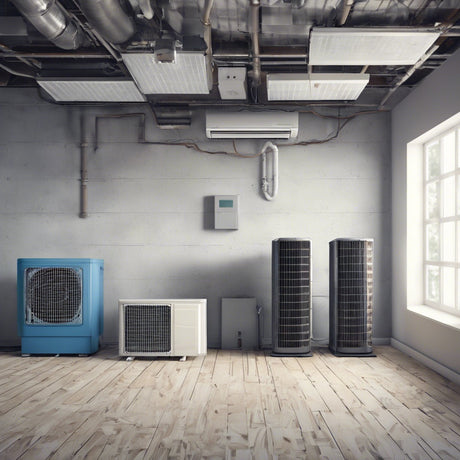- No products in the cart.
Maximizing Energy Efficiency: How Proper HVAC Installation Saves You Money
22
Feb
Introduction: In today's world, energy efficiency is not just a buzzword but a crucial aspect of sustainable living. When it comes to home comfort, one of the most significant contributors to energy consumption is the heating, ventilation, and air conditioning (HVAC) system. However, by ensuring proper installation of your HVAC system, you can not only enhance comfort but also save money on energy bills while reducing your environmental footprint.
Understanding the Importance of Proper HVAC Installation: Proper HVAC installation goes beyond simply setting up the equipment. It involves careful planning, precise sizing, correct ductwork design, and adherence to industry standards and guidelines. When done correctly, it can result in improved energy efficiency, better indoor air quality, and longer system lifespan.
Sizing Matters: One of the most critical aspects of HVAC installation is ensuring the system is appropriately sized for your home. Oversized units may short cycle, leading to inefficient operation and increased wear and tear, while undersized units may struggle to maintain desired temperatures, leading to higher energy consumption. A professional HVAC technician will perform load calculations to determine the right size for your home, taking into account factors like square footage, insulation, windows, and climate.
Optimizing Ductwork Design: The ductwork plays a crucial role in delivering conditioned air throughout your home efficiently. Leaky or poorly designed ducts can result in air loss, decreased system performance, and higher energy bills. Properly sealed and insulated ducts, along with optimized design to minimize bends and restrictions, can improve airflow and energy efficiency.
Seal the Leaks: Air leaks in the HVAC system can lead to significant energy wastage. Ensuring tight seals at connections, joints, and seams in the ductwork, as well as around windows, doors, and vents, can prevent conditioned air from escaping and unconditioned air from infiltrating your home. This not only improves energy efficiency but also enhances comfort and indoor air quality.
Invest in Energy-Efficient Equipment: When replacing or upgrading your HVAC system, opt for energy-efficient equipment with high Seasonal Energy Efficiency Ratio (SEER) ratings for air conditioners and Heating Seasonal Performance Factor (HSPF) ratings for heat pumps. Energy-efficient models not only consume less energy but also often qualify for rebates and incentives from utility companies and government agencies, further reducing the overall cost of installation.
Regular Maintenance: Even a perfectly installed HVAC system requires regular maintenance to ensure optimal performance and energy efficiency. Schedule professional tune-ups at least once a year to clean components, check for leaks, lubricate moving parts, and identify any potential issues before they escalate. Additionally, replace air filters regularly to maintain proper airflow and system efficiency.
The Bottom Line: Proper HVAC installation is a worthwhile investment that can result in significant long-term savings on energy bills, improved comfort, and reduced environmental impact. By working with qualified HVAC professionals and following best practices for installation, sizing, ductwork design, and maintenance, you can maximize the energy efficiency of your HVAC system and enjoy a more comfortable and sustainable home.
Conclusion: When it comes to HVAC installation, cutting corners can cost you more in the long run. By prioritizing proper installation, sizing, ductwork design, and maintenance, you can ensure optimal energy efficiency, lower utility bills, and greater comfort in your home. Remember, investing in energy efficiency today not only saves you money but also benefits the environment for years to come.













